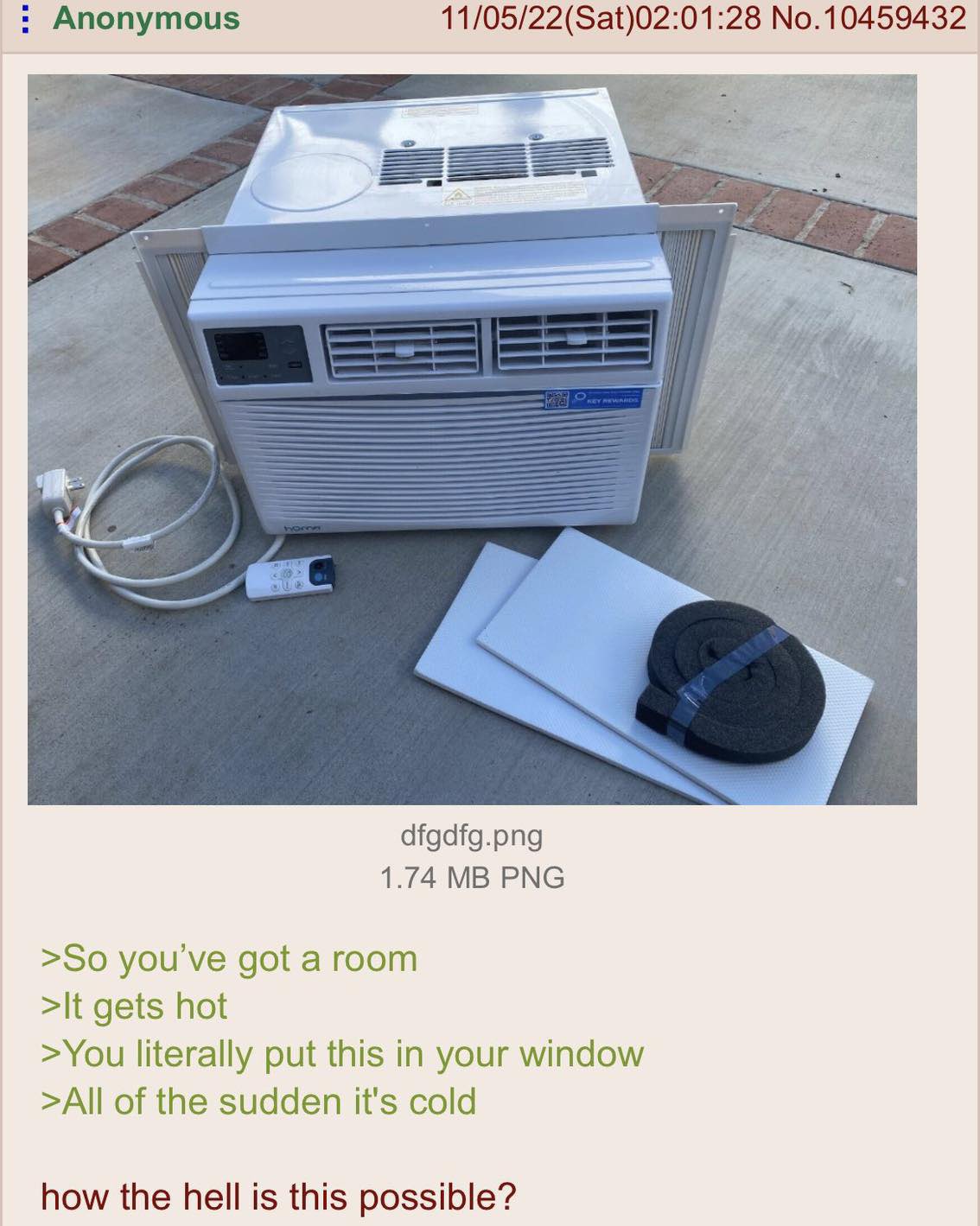this post was submitted on 07 Jul 2024
476 points (95.1% liked)
Greentext
6448 readers
1926 users here now
This is a place to share greentexts and witness the confounding life of Anon. If you're new to the Greentext community, think of it as a sort of zoo with Anon as the main attraction.
Be warned:
- Anon is often crazy.
- Anon is often depressed.
- Anon frequently shares thoughts that are immature, offensive, or incomprehensible.
If you find yourself getting angry (or god forbid, agreeing) with something Anon has said, you might be doing it wrong.
founded 2 years ago
MODERATORS
you are viewing a single comment's thread
view the rest of the comments
view the rest of the comments

They are also one of the few things that are more than 100% energy efficient.
300% to be exact. Because it uses some natural phenomena that just needs a little jump start and then can be maintained with little energy for massive air movement.
That efficiency metric doesn't really reflect what's going on. Of course moving stuff around is easier than heating it.
Some are as high as 510% efficient
The vapor compression cycle isn't exactly natural, and the compressor still needs a bunch of energy to keep going once it's started.
Yeah I’m pretty sure my air conditioner uses more electrical energy than all my other appliances combined. Probably by an order of magnitude. No EV in my case of course.
Yup. I'm hoping my AC and furnace die around the same time so I can just replace both with a heat pump. Not sure if it'll save much on heating prices since both nat gas and electricity are pretty cheap in my area, but it can hopefully make maintenance simpler.
A few years ago I replaced our electric furnace with a heat pump which also gave us AC. Overall the yearly bill went up because we now had AC, but winter months usage is almost half of what it was before. Only matching on the extra cold days where the backup heat kicks in.
Ah... energy doesn't work that way. You can't have a perpetually endless cycle with 100% efficiency in real world.
It's called a CoP, Coefficient of Performance. It essentially is a factor of how much electricity you put in and how much cooling power comes out.
Cooling towers can have a CoP of 12 and beyond, whereas compression cooling usually lingers at around 3 to 3.5. so at a CoP of 3 for instance, you could put in 1 kW of electricity and get 3 kW of cooling power.
Well it's not creating energy out of thin air. But it is moving it. So you get more energy moved than the amount of energy put in.
Sure but that's not the definition of efficiency, I'm sure it might be 5x more effective than traditional heaters of some sort from the power consumption perspective
so technically, it's not generating electricity, it's moving heat from point A to point B, and believe it or not, 20f air still has a lot more heat energy in it than 0k air. So yeah, it's more than 100% efficient. Comparing it to electric resistive heating, which is producing the heat directly from electricity, rather than moving it around.
An electric resistive heater is 100% efficient, the efficiency of gas furnaces is measured similarly, though they hit about 90% eff, due to basic mechanics. Geothermal systems would also have greater than 100% efficiency as well, due to the fact that they just move fluid around, which is then cooled by the earth, (or warmed by it) though external heating wouldn't be.